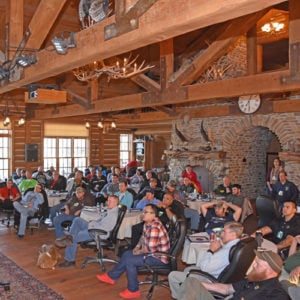Only a veteran knows exactly what they experienced on their tour. And only they know exactly what returning from active duty means to them. To some who make the transition from military to civilian life, however, Survivor’s Guilt is an important part of it.
Survivor’s Guilt is defined as a particular kind of guilt that develops in people who have survived a life-threatening situation. It is characterized by a belief that it is unfair that they got lucky when others didn’t, or by the belief that there is more they could have done to save the lives of others.
Suvivor’s Guilt tends to be framed as a particular aspect of Post-Traumatic Stress (PTSD), and while it is oftentimes caused by surviving a traumatic event, it can also develop in situations where someone feels that they’ve “left others behind.” In veterans that return from their military tours, this can include feelings of guilt at leaving their friends in the Corps behind.
The symptoms of Survivor’s Guilt tend to include nightmares, insomnia, flashbacks, apathy, anger, violent impulses, difficulty concentrating, numbness or loss of emotion and a preoccupation with the meaning of life. Additionally, depression and anxiety tend to arise in those who have undergone such experiences.
Generally, it is treated like a form of grief, and severe symptoms are common and even expected. However, if these feelings have persisted for more than six months with no sign of change, it’s time to seek help. This is especially important if you develop thoughts about hurting others and yourself.
As with other forms of grief, having friends, family and a community to rely on are key factors in dealing with these feelings. It’s easy to become isolated and get trapped in your own head, where there may seem to be no escape.
At FMF, our FOCUS program places emphasis on community. Our sessions are composed of and run by fellow Marines, Navy Corpsmen and other servicemen and women who have undergone similar experiences. Here, we give you the tools and the space to take back control of your life and overcome your grief.
By arriving at this site, you’ve already taken a step to recovery. There’s nothing more important than remembering that you’ve already accomplished great things in the past. You became a Marine, after all. Now that you’re making the transition back home, there are many more days in your future that you can spend continuing your history of excellence. And we’re here to make sure you don’t have to do it alone.




